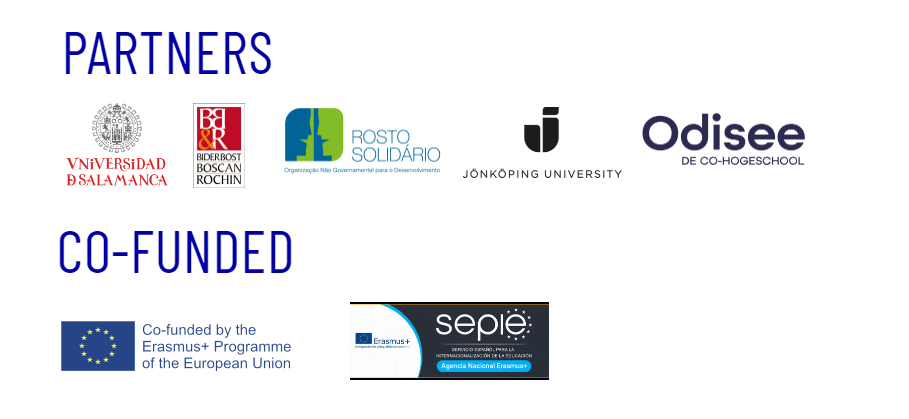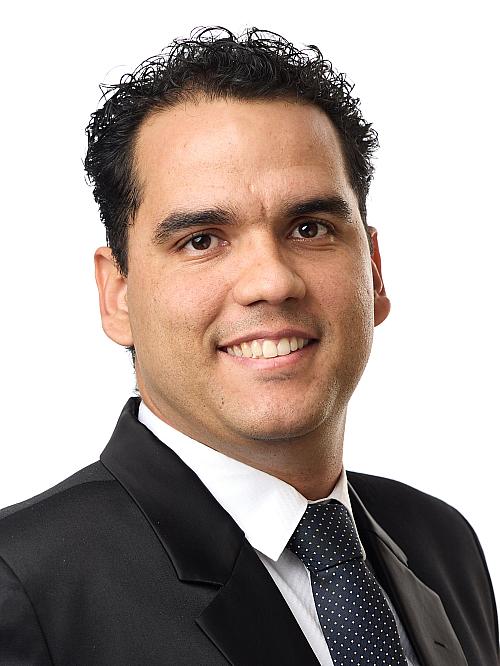Current Projects
MMTC is engaged in a number of collaborative research projects including, but not limited to, the following:
Evolve 2.0
Evolve 2.0 – Strengthening strategic innovation and sustainability for SMEs in the Jönköping region
Background and Importance
Small and medium-sized enterprises (SMEs) in the Jönköping region face increasing pressure from digitalisation, AI adoption, sustainability demands, and global uncertainty. Evolve 2.0 builds on the earlier Evolve – Logistics development in the Jönköping region project, which supported logistics-intensive firms in strengthening competitiveness through innovation, digital transformation, and sustainable development.
Drawing on lessons learned from the original Evolve project, Evolve 2.0 continues to support regional SMEs in navigating complex change and developing resilient, future-oriented business strategies.
Project Description and Objectives
Evolve 2.0 is a three-year development project aimed at strengthening strategic capacity, innovation, and sustainability among SMEs in logistics, manufacturing, production, and related service sectors in the Jönköping region.
The project supports participating companies in:
- Analysing external change and strategic challenges
- Developing long-term business strategies and innovation capability
- Advancing digitalisation and AI readiness
- Accelerating green transition and sustainability practices
- Strengthening competence development and organisational equality
The programme combines bootcamps, workshops, coaching, and innovation sprints, supported by Swedish and international experts, with a strong focus on translating strategy into practical action.
Expected Impact
Evolve 2.0 strengthens the ability of regional SMEs to manage digital and sustainability transitions in a structured and strategic way. By enhancing innovation capacity and organisational resilience, the project contributes to long-term competitiveness and sustainable growth in the Jönköping region.
Partners and Collaboration
The project is led by Nordic Infracenter in collaboration with regional partners. MMTC at Jönköping University contributes research-based expertise, building on its involvement in the original Evolve project.
Project Period: 2026–2028
Target Group: SMEs in logistics, manufacturing, production, and related services
MMTC member Carla Machado Opens in new window.is involved in the project.
Profit versus nature?
Profit versus nature? How private forest owners can navigate conflicting institutional logics in a highly politicized landscape to make better use of their forests
Background and Importance
Private forests play a vital role in delivering economic, cultural, and environmental value — from timber production and livelihoods to biodiversity and climate mitigation. However, debates about how forests “should” be managed have become increasingly politicized, framing forestry either as a source of economic return or as a resource to be preserved for nature protection and carbon storage. These conflicting institutional logics can make it difficult for private forest owners to interpret public discourse, decide on management goals, and act with confidence in their own forest stewardship.
Sweden has one of the highest levels of private forest ownership in Europe, with many small-scale landowners holding productive forest land and facing complex choices about how to manage it sustainably. As sustainability expectations grow, so do pressures and uncertainties for forest owners trying to reconcile profit motives with environmental and societal goals.
Research Objectives
This project aims to improve understanding of how private forest owners perceive and respond to competing forestry logics in a highly politicized landscape. The research will:
- Map and analyze different stakeholder perspectives on forestry — including economic, cultural, and environmental viewpoints — to clarify how institutional logics shape expectations and decision contexts.
- Investigate the gap between forest owners’ intentions and their actual forest management actions, including where confusion or conflicting signals may impede active forestry.
- Identify successful entrepreneurship models within the forestry sector to understand how owners have balanced economic and ecological goals in practice.
- Develop an analytical decision-support tool that can help private forest owners formulate business models aligned with their own economic, cultural, and/or environmental aspirations.
Expected Impact
By shedding light on how private forest owners navigate complex institutional pressures, the project will provide actionable insights for policymakers, advisory services, and owners themselves. The analytical tool developed through this research will offer practical guidance to support strategic decision-making and help unlock the untapped potential of private forests for sustainable use — advancing both local livelihoods and broader ecological objectives.
Research Team
Principal Investigator: Professor Leona Achtenhagen
Co-Investigators: Anders Melander, Anna Nordén
Financed by: Marianne and Marcus Wallenberg Foundation External link, opens in new window.
Grant: SEK 5 million
- Professor Business Administration
Director - Jönköping International Business School
- leona.achtenhagen@ju.se
Project STAY
Project STAY – Supporting International Students’ Pathways into Jönköping’s Working Life
Project leader: Leona Achtenhagen
Project period: 2025–2026
Funding: European Regional Development Fund (ERDF) and Region Jönköping County
Description:
The project explores how Jönköping can strengthen its attractiveness for international students to remain in the region after graduation. By investigating students’ experiences during their time at Jönköping University, the project identifies both barriers and opportunities related to entering the local labour market and integrating into everyday life. Issues such as employment opportunities, housing, transport, and cultural integration are in focus.
The results will provide valuable insights for regional actors and contribute to building stronger links between higher education and working life. In doing so, the project supports skills supply, sustainable growth, and innovation in line with Agenda 2030.
Partners: Jönköping University faculties, Jönköping Student Union, JU Enterprise, and the Chamber of Commerce and Industry Jönköping County.
- Professor Business Administration
Director - Jönköping International Business School
- leona.achtenhagen@ju.se
Configuring Management Control Systems for Resilience: Exploring Social Services and Primary Care During War
Background and Importance
This MMTC research project investigates how management control systems (MCS) such as planning, budgeting, cultural tools, and incentives are configured to support the resilience of social services and primary care during war, with a focus on the ongoing conflict in Ukraine. While previous research has explored control systems in financial or natural crises, little is known about their function in prolonged armed conflict—especially within critical public services.
Using Ukraine as a unique empirical setting, the project examines how local governments adapt systems like budgeting, cultural norms, planning, and incentives to ensure continuity of care and support for vulnerable populations under extreme conditions. The findings are particularly relevant for Swedish municipalities looking to enhance their crisis preparedness.
Research Objectives
The project is structured around three work packages:
- Social Services – Examines how MCSs are used in Ukraine’s social services to manage challenges like displacement, resource scarcity, and psychosocial support.
- Primary Care – Investigates how control systems are adapted in healthcare settings to handle infrastructure damage, workforce strain, and patient surges.
- Practical Guide – Synthesizes insights into a user-friendly guide for Swedish municipalities to improve resilience in social services and primary care.
The overarching aim is to identify effective configurations of MCSs that enable service continuity and adaptiveness during extreme crises.
Expected Impact
This project is designed to generate insights with both scholarly significance and strong societal relevance, especially in the context of public sector resilience during crises.
- Academic Contribution: The project will advance configurational theory by examining how various types of management control systems (MCS)—including cultural, administrative, and cybernetic controls—interact in extreme and dynamic environments such as war. It will fill a major gap in public management and accounting research, where conflict-related settings remain underexplored.
- Crisis Management Insights: The study will provide detailed case-based evidence on how local governments in Ukraine have adapted their planning, budgeting, and control mechanisms to maintain essential services like healthcare and social support. This offers valuable, real-world strategies for coping with prolonged, high-pressure situations.
- Practical Outcomes for Sweden: One of the main deliverables will be a practical guide for Swedish municipalities, offering evidence-based tools and recommendations for improving local crisis preparedness and public service continuity. This guide is expected to contribute directly to policy and practice at the municipal level.
- Global Relevance: Although grounded in the Ukrainian context, the findings will have broader applicability for governments and NGOs operating in fragile or conflict-prone regions. The project contributes to a growing global discourse on resilience in public administration, crisis governance, and humanitarian service delivery.
Research Team
Project Leader:
- Timur Uman, Professor of Accounting and Control, Jönköping International Business School (JIBS)
Co-Researchers:
- Miguel Gil, Assistant Professor, JIBS
- Bryan Malki, External link, opens in new window. Assistant Professor, JIBS
- Jan Alpenberg, Associate Professor, JIBS
- Yuliya Khvatsik, Assistant Professor, JIBS
- Aliaksei Kazlou, Assistant Professor, Linköping University
This interdisciplinary team brings together expertise in accounting, public governance, law, crisis management, and qualitative and quantitative research methodologies—with strong local networks in both Sweden and Ukraine.
Funding Body:
This project is funded by Jan Wallanders and Tom Hedelius stiftelse and Tore Browaldhs stiftelse.
Project Duration: 2025–2027
Total Grant Amount: 2,000,000 SEK
- Professor Business Administration
- Jönköping International Business School
- timur.uman@ju.se
The Influence of Artificial Intelligence on Accounting Education: A Comparative Study Between Mexico and Sweden
Background and Importance
The emergence of artificial intelligence (AI) is transforming the accounting profession and reshaping the skillsets required for future practitioners. However, business schools are still navigating how to adapt their curricula to align with these rapidly evolving demands.
This MMTC research project addresses the gap by exploring how universities in Mexico and Sweden are responding to the rise of AI in accounting education. By comparing two diverse national contexts, the project contributes to the modernization of accounting education globally.
Research Objectives
The primary aim is to identify and analyze how accounting programs in Mexico and Sweden are incorporating AI, and how this affects the development of future accounting competencies. The objectives include:
- Mapping AI-related content in accounting curricula
- Analyzing teaching strategies and technological tools used in the classroom
- Understanding the perceptions and preparedness of educators and students
- Comparing national approaches to aligning education with technological trends
The project will use qualitative methods, including interviews with educators and students, curriculum analysis, and cross-national comparison.
Expected Impact
- Educational Improvement: Identifies best practices to support accounting educators in adapting to AI-related shifts.
- International Benchmarking: Provides comparative insights into how different countries approach digital transformation in higher education.
- Policy and Curriculum Design: Offers actionable recommendations for aligning accounting education with the competencies demanded by an AI-driven labor market.
- Future-readiness: Helps ensure that future accountants are equipped with both technical and ethical skills necessary in the AI era
Research Team
Project Leader: Miguel Gil, Assistant Professor, Jönköping International Business School (JIBS), MMTC
Co-Researcher: Timur Uman, Professor of Accounting and Control, JIBS, MMTC
Funding Body:
This MMTC project is funded by Jan Wallanders och Tom Hedelius stiftelse and Tore Browaldhs stiftelse.
Project Duration: 2025–2027
Total Grant Amount: 750,000 SEK
- Assistant Professor
- Jönköping International Business School
- miguel.gil@ju.se
Strategy and structure for sustainable transformation: The system-wide role of retailers consumer-oriented sustainability strategies
How do retailers design strategies that not only focus on financial profit margins, but also help us make more sustainable choices?
This research project, conducted by MMTC researchers Mart Ots Opens in new window. and Timur Uman Opens in new window., alongside Anna Blombäck External link, opens in new window. (Jönköping International Business School) and Galina Biedenbach (Umeå University External link, opens in new window.), explores how the retail sector can influence sustainable consumption through strategic decision-making. The study aims to move beyond financial profit margins, focusing on consumer-oriented sustainability strategies that drive environmentally responsible purchasing behaviour.
Funded by a SEK 6 million grant from the Marianne and Marcus Wallenberg Foundation, the project will examine the role of trade in reducing consumption-based emissions.
Background and Importance
Consumption-Based Emissions and the Role of Retail
The concept of consumption-based emissions attributes a product’s total climate impact—covering manufacturing, transportation, and usage—to the end consumer. Sweden’s per capita consumption-based emissions are high in an international comparison, and private consumption significantly contributes to global climate challenges.
The retail sector, with an annual turnover of SEK 2,500 billion, represents 11% of Sweden’s GDP and plays a crucial role in shaping consumer demand. 97% of emissions related to retail occur outside the sector itself, primarily during production and consumption. This highlights the need for system-wide strategies to reduce climate impact, especially in categories like:
- Food (which now accounts for up to 30% of consumption-based emissions)
- Clothing and footwear
- Beauty and personal care products
- Electronics
With retail companies now recognizing their influence beyond direct operations, many are adopting consumption-based sustainability goals, with some major retailers setting targets to halve customers’ climate footprints by 2030.
Research Objectives
This project seeks to answer key questions regarding strategic retail decision-making for sustainability:
✔️ How do retailers develop and implement consumer-oriented sustainability strategies?
✔️ How does a focus on sustainability affect stakeholder collaboration, including suppliers and policymakers?
✔️ What impact do pricing, assortment planning, store design, and marketing have on sustainable consumer behaviour?
✔️ How can retail companies balance profitability and environmental responsibility while driving climate-conscious consumption?
Expected Impact
The results of this research will be valuable for:
- Retail companies facing growing internal and external sustainability demands
- Suppliers adapting to future industry changes
- Legislators looking to facilitate a transition to more sustainable consumption models
By providing insights into retail’s system-wide role in climate transition, this project aims to support Sweden’s commitments under the Paris Agreement and the 2030 Agenda.
Research Team
Principal Investigator: Associate Professor Mart Ots
Co-Applicants: Timur Uman, Anna Blombäck and Galina Biedenbach (Umeå University)
Collaborating Universities: Jönköping University and Umeå University
Funding: Marianne and Marcus Wallenberg Foundation – SEK 6 million
- Associate Professor
Associate Professor - Jönköping International Business School
- mart.ots@ju.se
Enabling Sustainable Business Models
Enabling Sustainable Business Models
This project investigates how macroenvironmental changes can be strategically leveraged to foster sustainable and socially beneficial innovation. It builds on the External Enablement Framework (EEF) External link, opens in new window., developed by Professor Per Davidsson and colleagues, which offers a novel lens for analyzing how ventures—both commercial and mission-driven—can respond to external shifts such as technological, regulatory, and environmental developments.
The project has two main strands:
- Policy as Enabler or Constraint: The first part examines how specific shifts in the regulatory environment, particularly public policy, can either support or obstruct the development of innovations that address societal needs.
- EEF for Practice and Education: The second part focuses on adapting the EEF for practical use by entrepreneurs and educators, aiming to make it an actionable framework for teaching, decision-making, and real-world strategy.
The research is conducted by Per Davidsson, Joaquín Cestino, Lucia Naldi and Madeleine Meurer Their work combines theoretical development with applied insights to support sustainability-oriented entrepreneurship.
This project is funded by the Hamrin Foundation and contributes to the advancement of responsible innovation through both academic scholarship and real-world application.
- Professor Business Administration
- Jönköping International Business School
- lucia.naldi@ju.se
Data Methods Initiative
Data Methods Initiative External link, opens in new window. aims to support social science research, promote methodological competencies among early-career researchers, and encourage the use of diverse research methods.
Our main goal is to encourage social science researchers to use accessible data methods for analyzing media.
With advancements in machine learning and artificial intelligence, tools for computational linguistics, computer vision, and machine listening are faster, more accurate, and easier to apply. As an interdisciplinary group, we initiate collaborations between researchers with diverse backgrounds and complementary skills. We explore applications in various areas, including business, economics, law, media, psychology, political science, and sociology.
Data Methods Initiative offers a range of seminars which take place on Zoom and target a diverse audience with different disciplinary backgrounds and different levels of knowledge of a given research context and data method.
Contact the Organisers
- Associate Professor
- Jönköping International Business School
- marcel.garz@ju.se
- Assistant Professor
- Jönköping International Business School
- thomas.cyron@ju.se
.png)
Data Methods Initiative is hosted by MMTC
Women in Retail
Project Summary
A paradox constrains the growth of retailing in Sweden and worldwide. While more than half of the new firms in retail are started by women, these firms tend to be smaller and grow less than those started by men. To address this paradox, the project focuses on three equally critical issues.
First, it examines why women decide to start a retail firm and how their family situation affects and is affected by this decision.
Second, the project explores what characterizes the retail firms started and run by women in terms of location, size, and growth prospects.
Third, it explores what distribution channels (online, physical store, or combinations of the two) women entrepreneurs choose and what are the growth implications of these choices.
The project addresses these issues using a multi-method approach, which combines a longitudinal quantitative study of Swedish matched employer-employee panel data and a multiple case study that follows 20 women entrepreneurs and their retail firms over three years.
The project will result in a final report, papers in highly ranked academic journals, digital material (comprising shorter videos and podcasts) as well as teaching material
that is to be integrated into courses. In addition, the project team will organize multiple activities to co-produce and share knowledge based on the project’s results. The project will contribute with new empirical knowledge on women entrepreneurs in Sweden and how they approach and manage firm growth in the context of the recent digital transformations driving innovation in the retail industry.
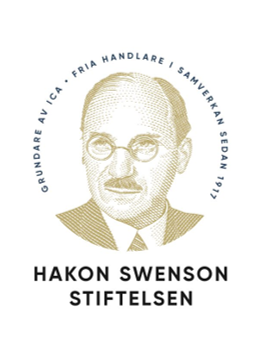
Women in Retail project financed by Hakan Swenson Stiftelse.
Hakan Swenson Stiftelse has approved financing of the 3 year project for a total of
3 625 274 SEK.
Project manager: Lucia Naldi
- Professor Business Administration
- Jönköping International Business School
- lucia.naldi@ju.se
Big data for all
#BigDataForAll is a project born from the need to train society in statistics and big data, which are little known but highly relevant subjects, especially in this new digital and post-pandemic era. Five partners join forces under Erasmus+ funding to bring these subjects closer to European citizens through a MOOC and an Educational Game that will be launched in 2023.
The project brings together universities (USAL, SHJ & ODISEE), companies (BB&R) and social organisations (Rosto), with the aim to provide training in these subjects for their subsequent application at academic and employment level.
The main objectives of the “Big Data For All” project is to: Update the Statistics and Big Data skills of young people, students, professors, and professionals from SMEs/NGOs. For more information: https://bit.ly/3ND2OAj
- Jönköping International Business School
- daniel.delosriosperez@ju.se
- Assistant Professor
- Jönköping International Business School
- duncan.levinsohn@ju.se
ScreenMe
ScreenME
ScreenME stands for screen media entrepreneurship.
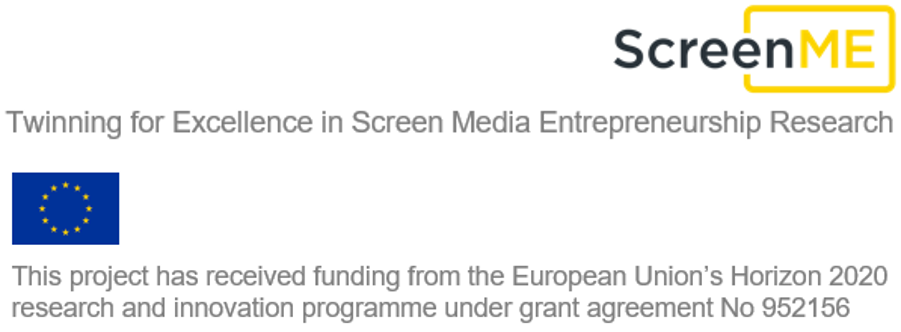
ScreenMe is an international network of universities across Europe that aim to improve research into and teaching of entrepreneurship for the screen media industry. Together, we organise events for academics and other stakeholders. As part of the project and network output, we have developed a corresponding teaching course and will kick off research initiatives and projects on entrepreneurial activities in media organisations as well as in start-ups that offer products and services relevant to screen media.
The network is led by the Centre of Excellence in Media Innovation and Digital Culture (MEDIT)
The partner universities are:
- JÖNKÖPING UNIVERSITY (MMTC), Sweden
- TALLINN UNIVERSITY, Estonia
- AARHUS UNIVERSITY, Denmark
- ILMENAU TECHNICAL UNIVERSITY, Germany
- LUT UNIVERSITY, Finland
- MUNSTER TECHNOLOGICAL UNIVERSITY, Ireland
- VRIJE UNIVERSITEIT BRUSSEL, Belgium
Find out more details about this network and project here External link, opens in new window.
Project Coordinator: Leona Achtenhagen Opens in new window.
Contact for the project: Thomas Cyron Opens in new window.
- Assistant Professor
- Jönköping International Business School
- thomas.cyron@ju.se
Recently concluded projects
Evolve - Logistics development in the Jönköping region
"Evolve - Logistics development in the Jönköping region" is a three-year development project funded by the Agency for Growth, Region Jönköping County, Nässjö Municipality, Vaggeryd Municipality, and Jönköping Municipality. The project will be managed by Hans-Inge Almgren through the Nordic Infracenter in Nässjö.
In the Evolve program, participating companies will receive targeted sustainability support in areas such as innovation, digitalization, competence development, environmental development, gender equality, and green transition. This assistance is critical to their business development and future growth, as many companies face sustainability-related challenges. With the help of the program, they will receive the necessary tools to move forward and also have the opportunity to share experiences and knowledge with one another. The selected companies will receive customized support to map their individual needs, drive strategies, and achieve their goals. The program is open to logistics-intensive businesses, including logistics companies in distribution and storage, railway and contracting companies, and manufacturing companies. Nässjö's business community is renowned for its strength in these areas, and the program presents an excellent opportunity to support existing companies with the resources and expertise they need to develop in the future.
MMTC member Carla Machado Opens in new window.and MMTC DirectorLeona Achtenhagen Opens in new window.are involved in the project.
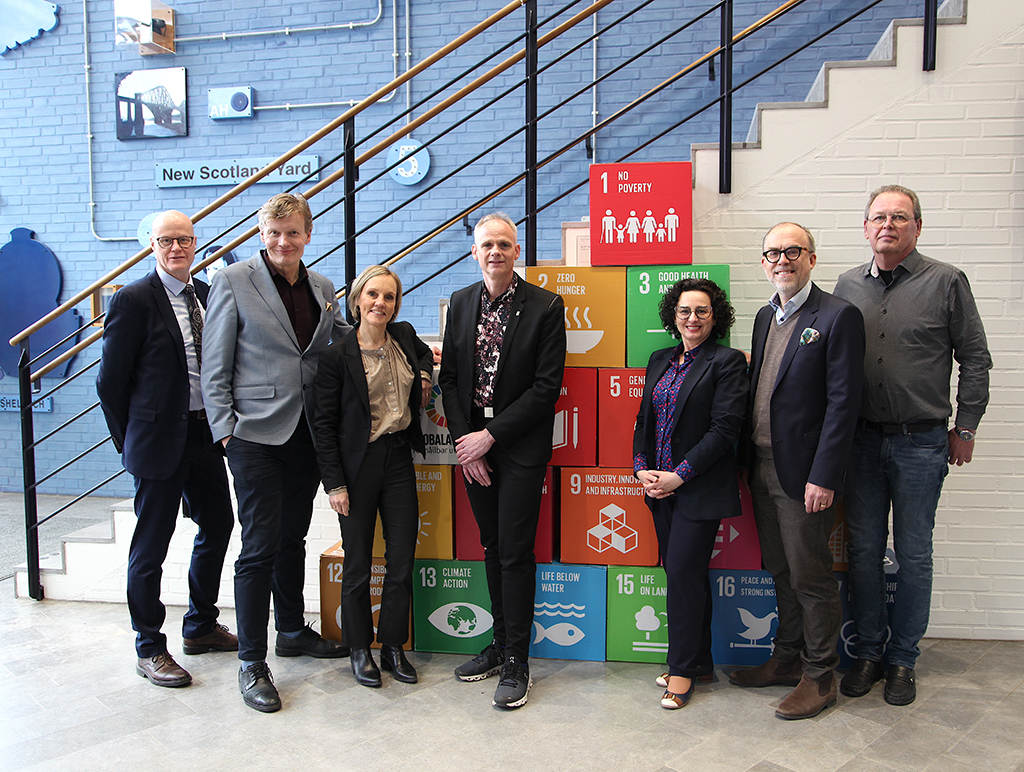
From the left, Johan Thorsell, Director of Business, Vaggeryd Municipality, Claes Johansson, CEO of Nässjö Näringsliv AB, Ingrid Wadskog, CEO of School of Technology (Jönköping University), Patrik Holst, Business Coordinator, Jönköping Municipality, Carla Machado, Jönköping International Business School, and MMTC member, Sven Rydell, Director of Business, Jönköping Municipality, and Hans-Inge Almgren project manager for Evolve, Nordic Infracenter.
SIRU 2.0
SIRU 2.0 – Social innovation för regional utveckling
A collaboration between Coompanion External link, opens in new window. and MMTC, Jönköping International Business School
The vast majority of companies in the world are small!
According to the EU, 99% of all European companies can be categorized as 'small and medium-sized enterprises' - or SMEs. This means that they have less than 250 employees and an annual turnover of less than 50 million Euros. Despite their small size, SMEs together have an enormous significance for the development of society. For example, 80% of all new jobs in the EU are created by the region's 23 million smaller companies. And of course, all these enterprises together create a great social and ecological imprint. So, it is very important that all these organisations operate in a sustainable manner!

SIRU 2.0 is financed by by Tillväxtverket with EU funding, and by Region Jönköpings län.
Project Aims:
Social innovation and social entrepreneurship are integrated into local and regional processes linked to business, academia, the public sector and civil society in order to help solve societal challenges in the Jönköping region. The project’s goal is to develop an effective support system and tools for social innovation, with societal challenges and issues of SME sustainability in particular focus.
The project is financed by Tillväxtverket with EU funding, and Region Jönköpings län.
Find out more details about this project here (In Swedish) External link, opens in new window.
Project Coordinator - MMTC : Duncan Levinsohn
Summary of the final report (Swedish only)
Click here to download a copy of the summary final report :"Results and Effects" pdf, 518.4 kB.
- Assistant Professor
- Jönköping International Business School
- duncan.levinsohn@ju.se










